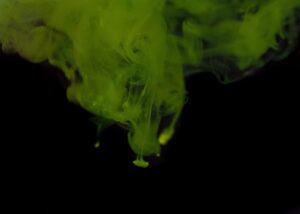WHAT YOUR BODY ODOR
Says About Your Health In Eastern Medicine

Have you ever been caught off guard by your own smell? We’ve all been there. You might chalk it up to a bad day, or try to forget about it in hopes that your perfume or cologne might mask the scent, but you’re actually doing yourself a disservice by disregarding how your body, well, smells.
Your body’s odor actually says a lot about what’s going on behind the scenes in regards to your health. So, if you think something’s up with your odor, then listen your nose!
The 4 Examinations in Eastern Medicine and What Smell Has to Do With It
In Eastern medicine, there’s something called the “four examinations.” They help specialists determine if there’s an imbalance in your body, and one of the four examinations is a simple smelling test.
Based on what body odors your specialist smells, they can detect what kind of imbalances or issues are at play in your body. As you might imagine, there’s more to your smell than you probably thought.
What Your Smell Says About You
Certain smells correlate to specific imbalances in your organs and body. Here’s a breakdown of what odors imply about your health and what you can do about it.
1. Bad Breath? It Might Be More than Just the Garlic You Ate for Lunch
 Everyone has bad breath from time to time. It’s pretty common, especially in the morning or after eating a meal with lots of garlic or other strong foods, like red onion or tuna.
Everyone has bad breath from time to time. It’s pretty common, especially in the morning or after eating a meal with lots of garlic or other strong foods, like red onion or tuna.
But what if it’s a recurring problem? Bad breath over a long period of time could possibly be tied to much deeper health issues. Specifically, practitioners link bad breath to excessive stomach heat.
In layman’s terms, Eastern medicine practitioners believe that stomach heat causes issues like an upset stomach, but can also lead to other ailments, like mouth ulcers, gum swelling, dry mouth, acid reflux, and even constipation.
The trick is to get rid of all that heat! One common method is to take herbal formulas, like huang lian, huang qin, and mu dan pi. These herbs are believed to be cold in nature, making them ideal supplements to take to reduce heat and toxins in the body.
2. Rancid Body Odors Could be Related to Your Gallbladder
 In Eastern medicine and Traditional Chinese Medicine (TCM), a rancid body odor implies that something is amiss in your gallbladder. The element associated with the gallbladder is wood, which is associated with growth and change, but also anger and frustration.
In Eastern medicine and Traditional Chinese Medicine (TCM), a rancid body odor implies that something is amiss in your gallbladder. The element associated with the gallbladder is wood, which is associated with growth and change, but also anger and frustration.
TCM holds that our gallbladder is our “decision-maker” organ. It’s responsible for planning and making judgments, so if you’re experiencing a rancid body odor, it could be that you’re simply too frustrated or not taking the time to plan your next steps. Take a deep breath and lose the frustration. Meditation can help, but also taking the time to appreciate your surroundings.
3. Sweet, Fragrant Odors Stem From Your Spleen
 The spleen is the source of your qi in TCM. It also plays a key role in digesting and dispersing nutrients throughout your body. If you smell a sweet (but foul) smell coming from your body, TCM specialists will likely correlate it to a qi deficiency, a.k.a. a spleen issue.
The spleen is the source of your qi in TCM. It also plays a key role in digesting and dispersing nutrients throughout your body. If you smell a sweet (but foul) smell coming from your body, TCM specialists will likely correlate it to a qi deficiency, a.k.a. a spleen issue.
To treat it, TCM practitioners suggest rest, relaxation, and a diet consisting of fermented foods, fatty meats like salmon or tuna, and fruits, vegetables, and nuts.
4. A Rotten Odor Could Mean Something’s Wrong With Your Large Intestine
If you’re smelling a rotten scent coming from your body, then something might be up with your large intestine. Your large intestine is the organ responsible for filtering waste from your body. In TCM, the element associated with rottenness — and your lungs and large intestine — is metal, which is also associated with grief and sadness.
A key step to re-establishing balance — and in turn, your large intestine — is to learn to let go of troubling emotions. One way to do that is to force yourself to spend time outdoors. Fresh air and exercise alleviate the mind and help you get back in the driver’s seat.
5. Smelling a Putrid Odor? It Could Be Your Kidneys
 Your kidneys are associated with the emotion of fear. Basically, if you’re experiencing high levels of anxiety, or are worried about panic attacks or other stressors in your life, then it could be your body telling you there’s an imbalance in your kidneys.
Your kidneys are associated with the emotion of fear. Basically, if you’re experiencing high levels of anxiety, or are worried about panic attacks or other stressors in your life, then it could be your body telling you there’s an imbalance in your kidneys.
If there is an imbalance, look for a putrid odor as well. It’s a strong sign there is something amiss with your kidneys. Of course, if it feels like a serious issue, go see a TCM specialist or a medical professional. As for curbing the effects on your own, frequent exercise (think walks or jogging outside) is one way to relieve your mind from stress and its hold on your body.
6. A Smoky Body Odor Implies Heart Issues
 The heart is a vital organ, no doubt. In TCM, it’s believed to manage the flow of blood in your body and also helps regulate mental activity. It’s also the resting place of your “shen,” or spirit.
The heart is a vital organ, no doubt. In TCM, it’s believed to manage the flow of blood in your body and also helps regulate mental activity. It’s also the resting place of your “shen,” or spirit.
If your body odor has a burnt smell, likened to burnt toast, then you may be dealing with an imbalance in your heart. Specifically, stress triggers the release of the hormone cortisol, and long-term stress can cause high blood pressure and other blood-related issues.
One way to deal with heart issues, and cortisol in particular, is to take an herb called San Qi, a type of ginseng root that’s been used to treat heart disease in China for centuries.
7. Strong Smelling Urine Is Tied to Damp-Heat
 In TCM, damp-heat, or dampness, is a common cause of urinary issues. Generally, if your urine has a strong, foul odor, it’s likely due to excess exposure to dampness. This could mean your environment — like your region’s climate or even your house — are just really humid.
In TCM, damp-heat, or dampness, is a common cause of urinary issues. Generally, if your urine has a strong, foul odor, it’s likely due to excess exposure to dampness. This could mean your environment — like your region’s climate or even your house — are just really humid.
But, it can also stem from bad habits, such as eating greasy foods too often, drinking too much alcohol, or both. One way to combat smelly (and dark) urine to improve your diet. Drink way more water, and eat healthier foods.
8. Pungent Stools Are Also a Bad Sign
The state of your stool says a lot about your health, too. Pungent, overly-strong odors emanating from your stool means that something is out of order. Plus, if you’re having more than two bowel movements a day, that can also mean you have some underlying health issues or imbalances at work.
If you’re noticing something’s wrong — and it’s lasting more than a few days — you should seek medical attention. Your TCM specialist can also help. Common treatments involve herbal formulas, acupuncture, and making drastic changes to your lifestyle and diet.
Have any other tips or suggestions related to body odor? Leave them in the comments below!
Comments (0)
Leave a reply
You must be logged in to post a comment.




